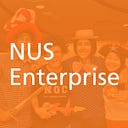7 Singlish Terms Every Startup Founder Must Know
Singaporean English, or Singlish as it is more commonly known, is an amalgamation of local languages ranging from English to Malay to Chinese dialects such as Teochew and Cantonese.
It may be hard to understand at first, but once you get the hang of them, you’ll be using it regularly! Here are some of the Singlish terms that every start-up founder must know in Singapore to speak like a local.
Here’s 7 Singlish terms by BLOCK71 Singapore
BLOCK71 Singapore an ecosystem builder and global connector which catalyses and aggregates the start-up community, as well as spearheads new initiatives and provides mentorship and growth opportunities in local and global market.
Bao-Ga-Liao (adjective)
Meaning: Doing everything, covering all roles
Origin: Hokkien Dialect
How to use: “You actually work in a team, you don’t have to bao ga liao from top to bottom. Let your teammates do some work!”
Lepak (verb)
Meaning: To loiter about, to do nothing
Origin: Malay Language
How to use: ‘Sometimes I just want to lepak at home and doing nothing’
Own Time, Own Target (adjective)
Meaning: To set your own pace
Origin: Originally an army term used during live firing sessions
Also commonly abbreviated as OTOT
How to use: “John, don’t worry. That project you can work on own time, own target.”
Chope (verb)
Meaning: Reserve
Origin: Malay Language
How to use: “I’ve choped a table for us, let’s go buy our food.”
Fun fact: In Singapore, locals use a packet of tissue paper to signify a table in a food centre has been reserved.
Chiong (verb)
Meaning: To rush, give one’s all
Origin: Hokkien Dialect
How to use: “There’s still a lot of time before the project deadline, no need to chiong la.”
Another meaning of chiong — to party
Kopi Kau (noun)
Meaning: Really strong brewed coffee
Origin: Malay Language and Hokkien Dialect
How to use: “Get a kopi kau for me when you go to the coffee shop, thanks!”
七七八八 qī qī bā bā (noun)
Meaning: Almost there
Origin: Mandarin Language
How to use: “This presentation done until 七七八八 already.”
Sure Can One (adjective)
Meaning: Definitely possible, can be done
How to use: “Can you finish your project on time?” “Sure can one, there’s a lot of time.”
Hope you’ve learnt some Singlish that you can use in your daily life! For entrepreneur inspiration straight to your inbox, subscribe to our weekly entrepreneur feature here.
